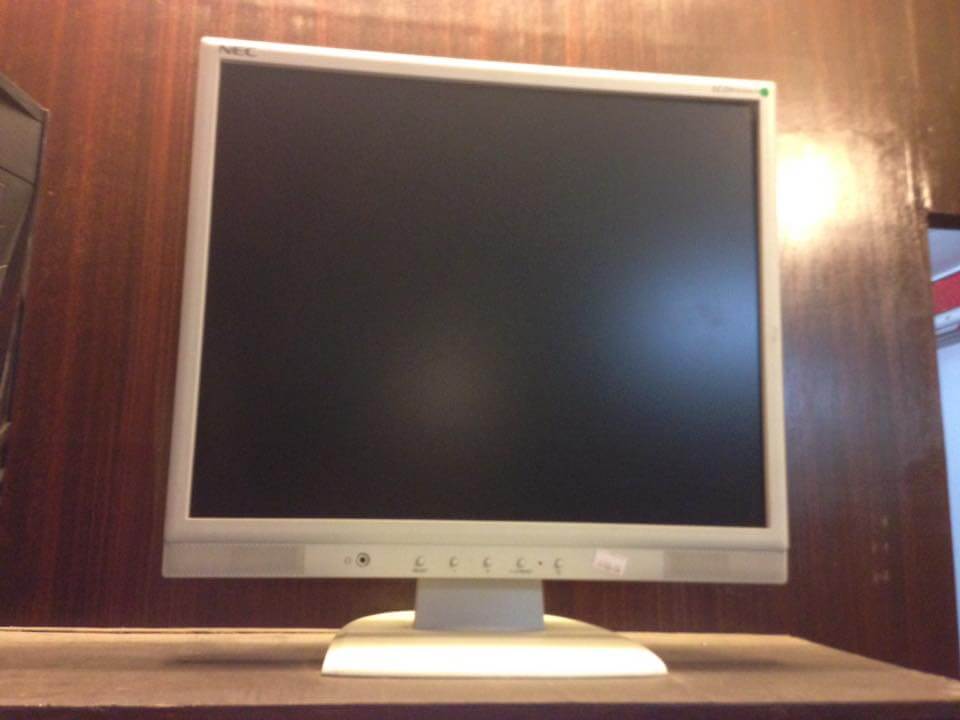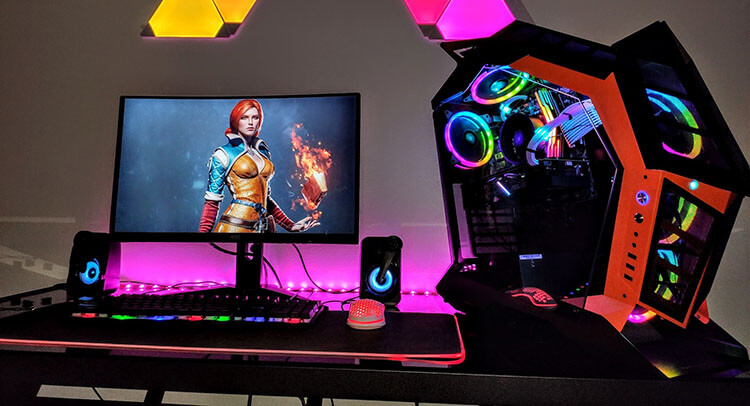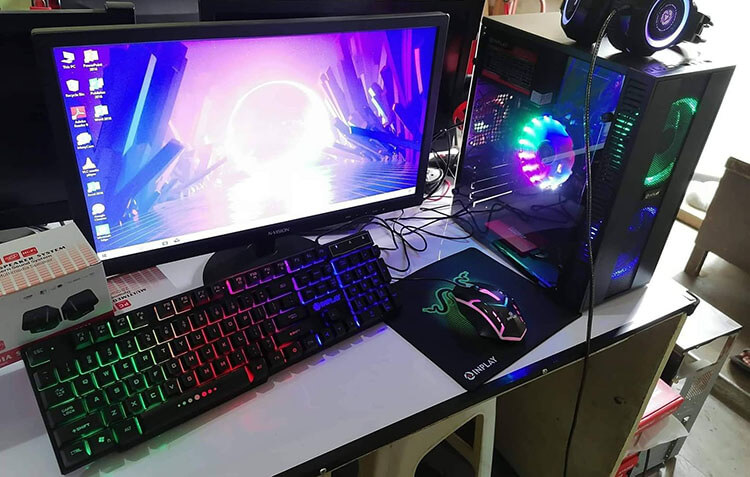It’s possible to play games on a regular PC, but you’ll likely be limited to playing more casual titles like Minecraft or League of Legends. You can play modern games on your PC by updating the CPU, Motherboard, RAM, and Graphics card.
Do you really need a Gaming PC?

Almost every current computer is capable of playing every video game. This, of course, does not guarantee a buttery-smooth experience even on the highest settings, and there’s a chance even the defaults may cause hiccups.
It’s a different story if you want to compare the relative merits of a gaming PC and a conventional computer. There are a few factors to think about:
For you, what does “gaming” entail?
If playing Fortnite or Minecraft (or anything of that quality) is your idea of a good time, then you can get by with just about any desktop computer or laptop. However, a more robust system will be required to play high-end, Triple-A games (such as Red Dead Redemption 2 or The Witcher 3).
Do you plan on purchasing an affordable or pricey computer?
In most cases, a high-priced ordinary PC will outperform a low-priced gaming PC.
Just how long has this computer been around?
A basic, inexpensive PC from this time will surely outperform a high-end gaming machine from 2005. (This is a bit of an extreme example, of course).
To get your money’s worth out of a gaming PC, you need to put in a sizable investment and play often. It may not be worthwhile if you just do it sometimes and use your computer for other things, like school or a job. In the end, everything boils down to personal taste.
Gaming PC vs. Regular PC
A standard personal computer is a versatile system that can do any task a user may need. But what about the computer game consoles? These are high-powered systems optimized for gaming, with specs like fast graphics processing units (GPUs), plenty of RAM, and enough storage space for your games’ high-resolution 3D models and textures.
You may be wondering how they differ from classic computers. Liquid cooling systems, in which heatsinks have been replaced by tubes conveying coolant via extensive loops beneath their circuit boards, absorb wasted heat away rather than contribute to their increased power and size.

Display
When it comes to the screen, standard desktop monitors with 720p resolution or less will do most tasks. However, they are insufficient for a game that needs a 4k display to look well. Additionally, the frame rate of a gaming PC is higher. Otherwise, there may be random freezes in the display.
Many gaming monitors these days use OLED touchscreens, 4K resolutions, and G-Sync technology. The standard screen on your computer can be 4:3 or it might be full screen. The 16:9 aspect ratio, more often known as a widescreen, is rapidly gaining popularity as the standard for video displays across the globe.
Computational Strength
A gaming PC is outfitted with cutting-edge hardware and software. They need more processing power than a standard computer would normally have. If compared to the power consumption of a typical computer, the difference may be insignificant. It might need 1-2 units of energy every day. Power usage might reach 700 watts when running at 4K resolution and a demanding game like Call of Duty.
RAM
In the past, random access memory (RAM) was the most important factor in computer speed. A typical desktop computer may contain 8 GB of RAM, however, only 4 GB is necessary. Because of the large amounts of cached information and memory consumed by graphics and audio, a gaming machine needs at least 8 GB of RAM to function properly. Memory (RAM) must work with the motherboard of the device. You can’t swap out DDR3 8GB RAM with DDR4 32 GB RAM, and vice versa. The previous generation of RAM has been superseded by DDR4, also known as Double Data Rate 4.
Better Cooling System
Before, enormous air conditioners were needed to cool computers because semiconductors let out so much heat. This is now automatically completed by cooling tubes. In standard desktops, a modest fan is sufficient for cooling, however liquid cooling tubes are utilized in gaming computer equipment for optimal efficiency.
In comparison to a standard computer, a gaming PC will cost you about $900 extra to construct. This leaves the decision entirely up to you.
Drawbacks of Gaming PC
Cost of Gaming PC
With great power comes great Pricing.
Unfortunately, gaming PCs are far more costly than standard desktop computers.
The price of a desktop computer may range from $300 to $1,000 (without including the cost of the monitor or any peripherals), with the typical cost being closer to $500 or $700.
Typically, you should expect to pay between $800 and $2000 for a gaming PC. Tech-savvy gamers frequently construct their own computers to save money, but the general public isn’t interested in doing so. You really shouldn’t spend a lot of money on a gaming PC if you simply use your computer for basic stuff like spreadsheets, word documents, and web surfing.
However, a high-end computer is necessary if you want more processing power, quicker speeds, superior graphics, and high-quality audio.
Used gaming PCs are available, but my advice is to always purchase from a trustworthy retailer that can provide a guarantee of some kind.
Utility Bills
It’s no secret that gaming PCs are the most energy-hungry. Depending on your energy habits, you may or may not see a significant improvement in your monthly electricity cost.
What to Look for in a Gaming Computer

These days, you may choose between prebuilt and custom-built gaming PCs. A prebuilt gaming PC is a good option if you don’t know much about the compatibility of gaming gear. If you use this, you won’t have to spend as much time looking for the right one. Additionally, the pre-built gaming PCs have a guarantee of at least a year. This is your legal recourse in the event of a mishap.
However, if you have a basic understanding of game components such as the central processing unit, graphics processing unit, and random access memory, we highly advocate constructing your own gaming computer. The learning curve is lower than with a prefabricated machine, and you may save more money in the long run.
Some of my pick for Pre-Built Gaming PC is as follows:
- ZOTAC Gaming MEK Hero G1 I1736KFT Liquid Cooling Gaming PC Desktop Intel 11th Gen Core i7 11700KF, GeForce RTX 3060 Ti 8GB, 16GB 3200 MHz DDR4, 1TB M.2 NVMe SSD
- Alienware Aurora R14 Liquid Cooled Gaming Desktop – AMD Ryzen 9 5900, 32GB 3466MHz RAM, 1TB SDD + 2TB HDD, NVIDIA GeForce RTX 3080 10GB GDDR6X Graphics
- MSI Aegis RS Gaming Desktop PC, Intel Core i7-12700KF, GeForce RTX 3060 Ti, 16GB Memory (Dual-CHL), 1TB NVMe SSD, WiFi 6E, Liquid Cooling
- CYBERPOWERPC Gamer Supreme Liquid Cool Gaming PC, AMD Ryzen 7 5800X 3.8GHz, GeForce RTX 3060 12GB, 16GB DDR4, 1TB NVMe SSD, WiFi Ready
- ROG Strix G10 Gaming Desktop PC, Intel Core i5-11400F, GeForce RTX 3060, 16GB DDR4 RAM, 512GB PCIe SSD, Wi-Fi 5
Conclusion
At long last, low-end PC games may be played on an ordinary computer. If you want the most out of your game and its settings, however, you need either get a dedicated gaming PC or add powerful components to your standard PC. Make sure the PC is compatible with the new components you want to add before doing the update.
